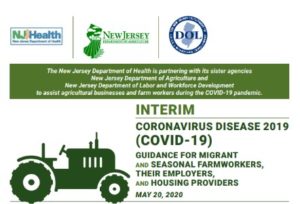The following message was shared by Shavonne Person, Community Outreach & Resource Planning Specialist (CORPS), and Steven Risko, Assistant District Director, U.S. Department of Labor – Wage & Hour Division, Southern New Jersey District Office in Lawrenceville:
“The U.S. Department of Labor’s Wage and Hour Division enforces some of our nation’s most comprehensive labor laws for agricultural workers, [Read more…]

